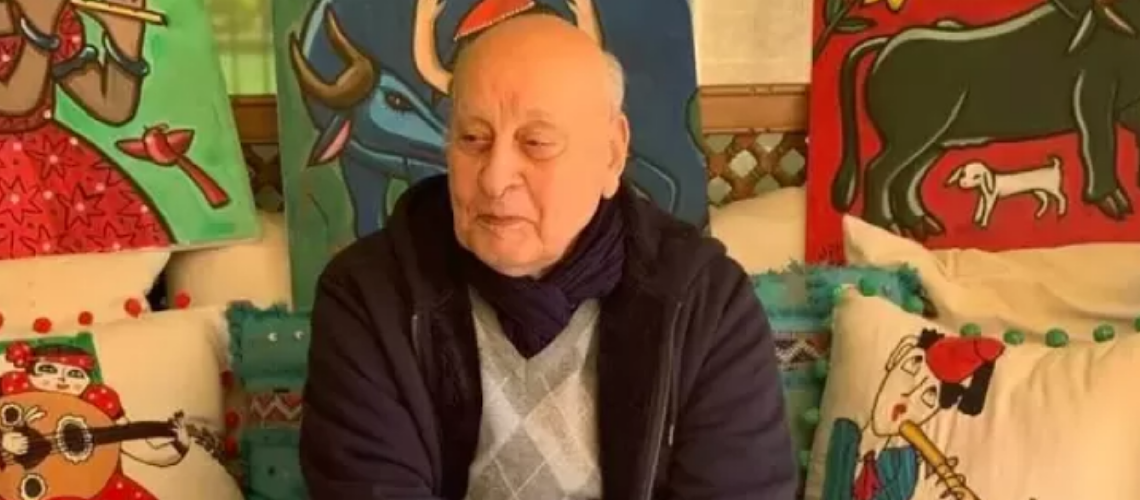Veteran Egyptian visual artist Helmi El Touni, one of Egypt’s most distinguished artists and a globally recognized book cover designer, passed away on Saturday, September 8, 2024, at the age of 90, leaving behind a legacy that will continue to inspire generations to come.
El Touni was a pioneering figure in the design of book covers and cinema posters and is regarded as one of the founders of the book cover art in the Arab world, starting in the 1950s. His influential work left an indelible mark on the region’s visual and cultural landscape.
El Touni was celebrated for his mastery in oil painting, book cover design and caricature. He gained widespread recognition for designing over 4,000 covers for Arabic novels, books, and stories, and contributed to the visual identity of several iconic Egyptian films. He played a key role in an artistic renaissance that sought to preserve and promote Egyptian identity, leaving behind a legacy deeply intertwined with the region’s cultural heritage.
Born in 1934 in Minya Governorate in Egypt, ElTouni graduated from the Faculty of Fine Arts at Cairo University in 1958 with a degree in theatrical décor and studied decorative arts. Throughout his decades-long career, El Touni created a large body of work that spans between illustrations for children’s books, book covers, magazine illustrations and layouts, logos, political posters, and typography.
He was widely known for his artwork rooted in Egyptian folk themes and mascots , which he skillfully brought to life in books and magazines, including works for children’s publications like Egypt’s Samir magazine and books such as Jalila and Menna. His contributions formed a key part of an artistic renaissance that celebrated Egyptian identity and cultural heritage.
El Touni held several notable exhibitions, including one dedicated to showcasing paintings inspired by popular and traditional Egyptian songs, such as “Ya Helou Sabah Ya Helou Tol” by Mohammed Qandil and “Kaab El Ghazal” by Mohammed Rushdi. He also drew inspiration from Arabic classics like “Zahrat Al Mada’en” by Fayrouz and “Sett El Habayeb” by Fayza Ahmed.
Women with big eyes surrounded by Egyptian icons were a prominent theme in El Touni’s work. He once remarked, “Every artist has a set of vocabulary, and for me, the most important is women. I consider myself a supporter of women. I look at them with both sympathy and admiration, and despite the fairness they deserve, they are often treated as if they are a minority.” His perspective on women deeply influenced his art, as he aimed to emphasize their strength and resilience while also shedding light on the societal challenges they face.




